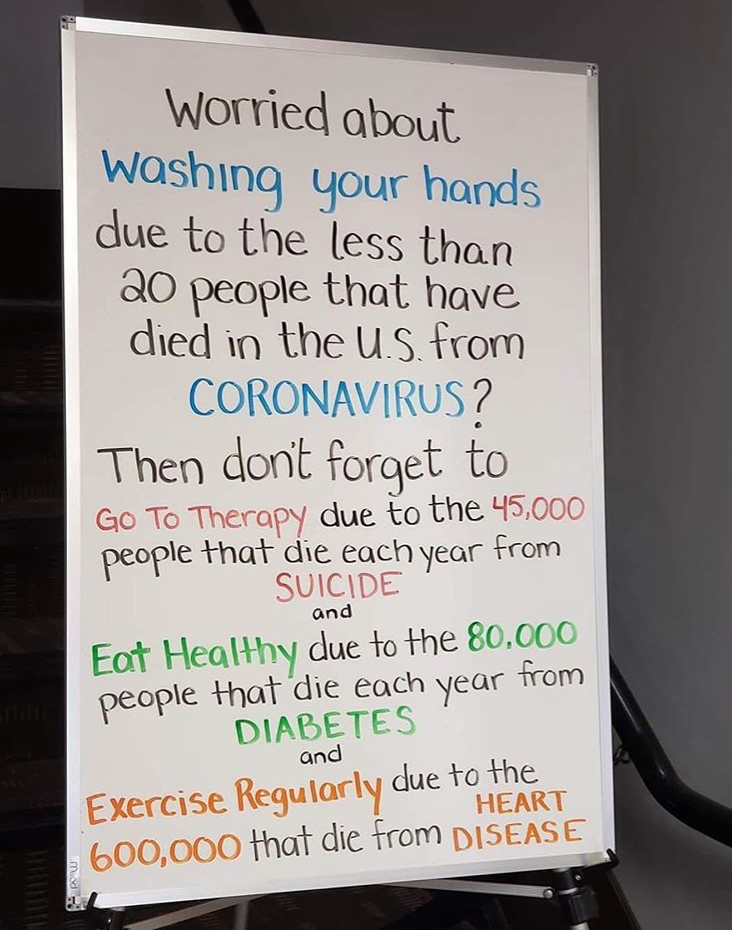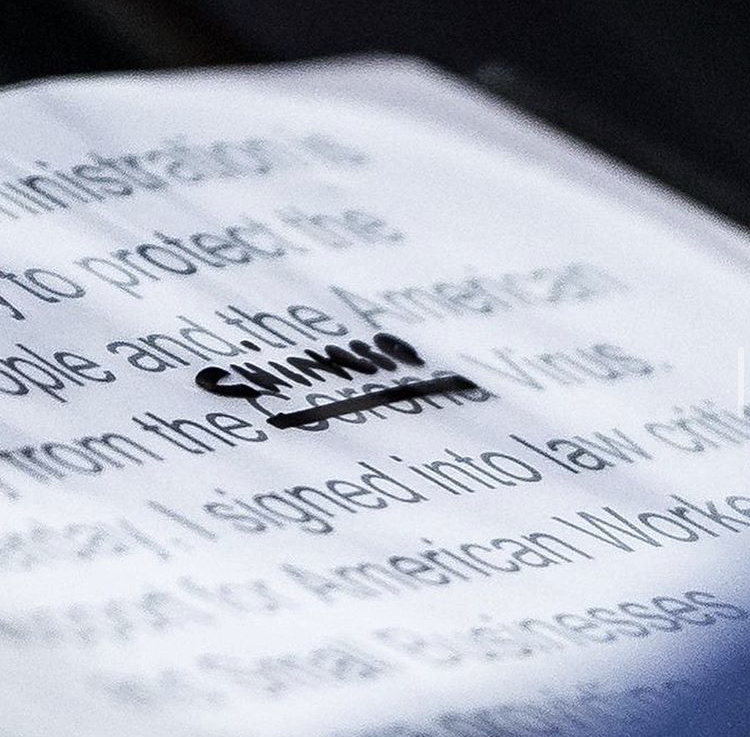Responses to Coronavirus Highlight a Lack of It
Jacqueline Lutz
As coronavirus continues to spread across the country and around the world, a shocking lack of empathy rises from its path. While scrolling endlessly as one does on Instagram, I came across a picture on my feed and was taken aback.

The picture of this poster currently has almost 24,000 likes on Instagram and was posted by an account called “worthfeed” that posts entertaining pictures and memes.
This was posted right when the epidemic was beginning to spread to the United States and did not age well, given the virus’s immense impact on the country within the past two weeks. Maybe this post was attempting to bring awareness to other issues people are facing along with the then-looming COVID-19. But it could have gone without belittlement of actions people who are taking to keep the virus from infecting them and their families.
With a global epidemic happening, people take precautions such as washing their hands, using hand sanitizer and being careful in public places. This is normal for people to do, and is also directed by health officials and organizations such as the Centers for Disease Control and Prevention (CDC).
What is not normal compared to other epidemics such as the Spanish Flu and the Ebola pandemic is the sudden lack of empathy surrounding it.
Not only does this poster highlight this, but it also compares the virus with other serious mental and physical issues that affect the daily lives of people, such as suicide, diabetes, and heart disease. The irony in this comparison is that two of these issues, heart disease and diabetes, can lead people to have compromised immune systems and make it more likely for them to contract the virus.
This poster additionally makes it seem as if the coronavirus is “no big deal” but also shares a similar mindset to those who have chosen not to “social distance” even after being directed to do so.
People still get together at each other’s houses, go on picnics, visit the cherry blossom festival in D.C. — all fun things to do if there wasn’t a major epidemic going on. This not only goes against the guidelines of the government and health organizations but also disregards people who are more heavily affected by the spread of the virus, such as the elderly and people with compromised immune systems.
An example of the ignorance surrounding the virus is the rumors spreading about how the virus started in the first place. These rumors are especially popular on the social media app Tik Tok, which has now taken steps to prevent misinformation from being spread with links to more information about coronavirus under videos with any hashtag related to the virus.

The most popular rumor about the origin of the virus is that someone in China ate an exotic animal that carried the disease and spread it to other people. Not only is this not verified by any health organization, but it also has a mocking undertone towards Chinese culture and tradition of eating animals not popularly eaten in the U.S.
Additionally, President Trump called the virus the “Chinese virus” in a coronavirus briefing on Thursday, March 19. His reasoning was that “it came from China.”
The unverified rumor of the virus’ origin and the wording of the President shifts the blame for this epidemic towards the Chinese people as a whole. This has led to racism and xenophobia towards Asians, with racist attacks against Asians increasing as reports of hate crimes average around 100 per day, according to Representative Judy Chu (D-Calif.)
These attacks just add to the chaos and confusion that America is currently in. People are allowed to be sensitive, overreact, make jokes, or do whatever they need to in order to cope with the major changes to their daily lives because of the epidemic (as long as they’re doing it from home and without being racist or ignorant). People are suffering and coping and it’s not anyone’s place- including a random poster on their Instagram feed- to tell them not to.
We don’t live in a perfect world and it’s hard to always be politically correct, and I don’t expect people to always be. But in a time of uncertainness, unity and understanding are more productive in helping the world move forward and fight the virus, together.

